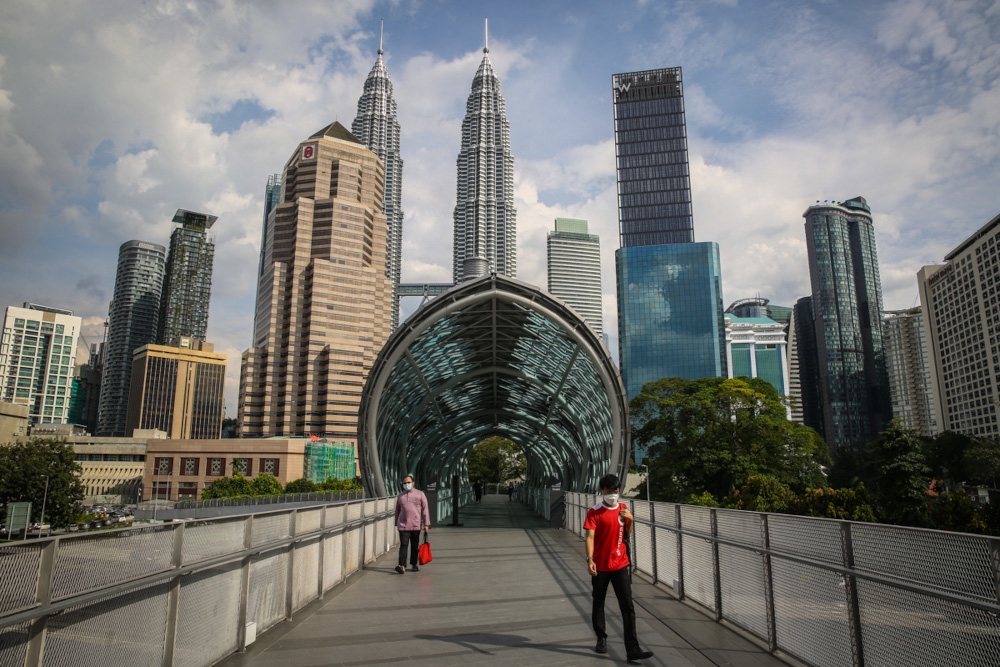SEPTEMBER 28 — Malaysia is entering a transformative political period where women are the forefront of political activism, unseen since the nationalist consciousness of the late 1940s and to some extent, the dark days of 1987. At the helm is Maria Chin Abdullah, a stalwart campaigner of women’s rights better known as the leader of Bersih.
A Malaysian woman, alongside a few other women, leading a mass rally against grand corruption is important for a few, but nonetheless significant, reasons. The Malaysian state — the parliament and its ancillary institutions — is overtly hypermasculine in character. Here, not only is Malaysian politics overwhelmingly male but the fact that hypermasculinity errs on the more toxic connotations of extreme repression and violence.
When under threat, defenders of the hypermasculine state re-assert themselves in a public display of martial arts and other threatening gestures. The homosocial band of men tumbling over each other and breaking planks of wood is yet another reminder that the dominant narrative of governance in Malaysia is one undergirded by amok.
So, it might seem that we are witnessing a gendered duality at conflict with each other; between the peaceful women-led movement and state-sanctioned hypermasculine violence. Malaysia is not unique in harnessing “feminine” probity and integrity to address state corruption sanctioned by a masculine political culture.
A 2001 report by the World Bank is of the opinion that corruption will decrease when more women are elected into public office. In Peru, Mexico, and Uganda, women have filled the ranks of state authorities — as police officers, customs officials, local government treasurers—in the belief that women are less willing to take bribes.
However, as New York University professor of global security Anne Marie Goetz notes, women’s inclication to be less corrupt is a myth and the “femininity” of peace and political honesty may be the same reason why women are kept out of formal politics in the first place. Goetz finds that women in politics are expected to maintain moral propriety and are more vulnerable to sexualised threats and attacks.
Women may also be on the take, but their numbers in politics are fewer and their power base smaller. However, women are likelier to be confronted by the risk of sexualised corruption compared to men. They might not be making illicit payments that are measured in formal indices of corruption levels. Instead, sexual harassment or sexual favours may be the “currency” of corruption.
To rise in popularity, women will do well by playing up their roles as virtuous guardians, mothers, and grandmothers. When they do not, others will assign them these roles. The sexist and ageist article by Shannon Teoh portraying Maria Chin Abdullah as the “kindly auntie“ is a case in point. As a “kindly auntie”, Maria is constructed as non-subversive and completely unthreatening to the arrogant defiance of the country’s male leaders.
When I communicated with Maria, she described the overarching impact of high profile corruption on women in Malaysia. Mismanagement of public funds leads to unforeseen austerity that would be disproportionately detrimental for women as the more vulnerable group in Malaysian society. The link between anti-corruption and women’s rights makes sense at face value. In fact, as Maria herself says, the struggle against corruption is inseparable from women’s rights.
I am impressed by this grand narrative of interconnected oppressions. However, my question with regards to women’s rights is: why now? If women’s rights are so integral to anti-corruption, why were they not in any of Bersih’s demands? In her reply, Maria was wise to comment that we require data and grounded research first to establish and verify how corruption damages women’s opportunities in public and domestic life.
A deep concern for feminists in Malaysia is that yet again gender is subsumed by other discourses. The subtext of anti-corruption being tantamount to women’s rights is that gender is always there in the background, lurking behind the scenes in Malaysian political activism. The question of gender in Malaysian politics is important, however not important enough to warrant massive rallies.
When seen through analytical lens, the gendered yin and yang of female/male power and the good/bad woman is actually front and centre. Seen at face value, the Malaysian women of Bersih call for the re-establishment of law and order, while men abuse their power. Women pick up the slack of a failed state, cleaning up the men.
But Malaysian political culture will continue to fail when it treats women as a monolithic bloc. Increasing female representation by 30 per cent but without foregrounding women’s diversity will result in the recruitment of elite women and women from dynastic clans and marital ties with male leaders into public office.
The answer to Malaysia’s state of affairs is not a martriarchal all-female parliament or a more “feminine” Malaysia, if the sine qua non of political femininity is moral propriety. A cleaner governance, by bringing the domestic sphere into the corridors of power rather than outside of it, may be a radical solution.
* This is the personal opinion of the columnist.






















